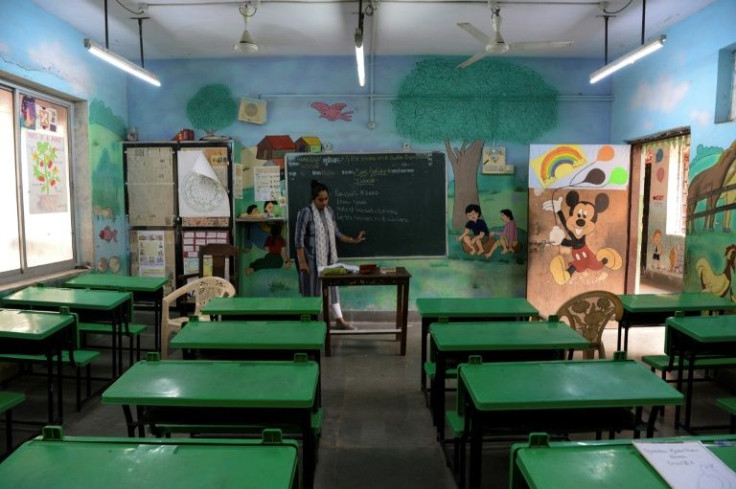This 'Very Contagious' Virus Is Spreading In Denver Schools Faster Than Omicron
KEY POINTS
- Respiratory Syncytial Virus causes infections in a person's lungs and respiratory tract
- A severe case of RSV can also cause pneumonia or bronchiolitis
- A person may become infected with RSV and COVID-19 at the same time
Students and residents in Denver area are now catching a “very contagious” virus that spreads faster than the Omicron COVID-19 variant, a state medical official said.
Dr. Reginald Washington, the chief medical officer at Rocky Mountain Hospital for Children, said Respiratory Syncytial Virus (RSV) is currently dominating the Omicron variant in and around Denver.
"RSV is very contagious and very prevalent in the school system as well as throughout daycare centers and in homes. So RSV is certainly the winner," Washington told KDVR.
Respiratory syncytial virus causes infections in a person’s lungs and respiratory tract. The virus can cause severe illness in some people, including infants, premature infants, older adults, and people suffering from pre-existing medical conditions.
RSV has similar symptoms to that of COVID-19, such as runny nose, dry cough, sore throat and headache. A severe case of RSV may also cause difficulty breathing, rapid breathing, pneumonia or bronchiolitis.
For children, COVID-19 may result in mild symptoms. On the other hand, having RSW could significantly lower children’s immunity and increase their risk of getting the novel coronavirus. A person can also get both RSV and COVID-19 at the same time, which may lead to worse symptoms, according to the Mayo Clinic.
RSV causes between 100 to 500 deaths among children under the age of 5 each year. Among adults over the age of 65, at least 14,000 die of RSV each year, data from the Centers for Disease Control and Prevention showed.
Despite the rising number of RSV cases, health officials still urge parents not to let their guard down if their child tests negative for COVID-19 but has similar symptoms to the virus.
Many doctors and researchers late last month said they have yet to see evidence that the Omicron variant is more dangerous to children than other COVID-19 variants. However, the number of pediatric infections has steadily increased, with officials reporting 580,247 child COVID-19 cases between Dec. 30 and Jan. 6.
Hospitalizations among children with COVID-19 also represented 1.7% to 4.3% of total cumulated admissions in states that report pediatric coronavirus data.

© Copyright IBTimes 2024. All rights reserved.






















